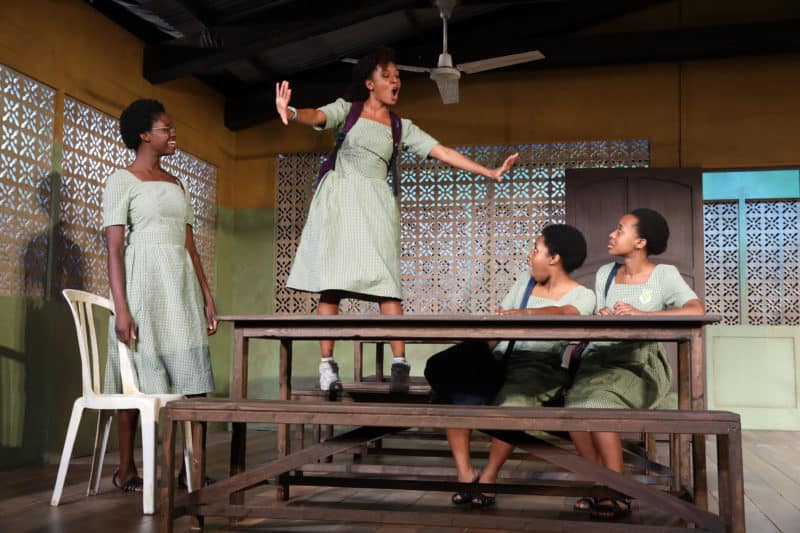It happened without warning. There I was, seated between my two young granddaughters, watching School of Rock, expecting nothing more than a mindless musical. The kids on stage had worked themselves into a frenzy as their substitute teacher instructed them in the art of being angry. “Stick it to the man,” they shouted. And suddenly I was on my feet, my fist thrust defiantly in the air, along with the entire audience. We swayed in unison, singing, then screaming, at the top of our lungs, “Stick it to the man.” At that moment, we all seemed of a single mind. The restrictive authority of the fictional elementary school administration on stage was a stand-in for our real-life, common enemy: an orange-haired despot living in the White House, furtively stealing freedoms.
It was exhilarating. Satisfying. We were new converts at a revival meeting.
Theater can be a temple, where politics and civic values are preached, where action on the stage of even the most banal show can incite a fervor in the house. I was converted as a pre-teen, when Martin Duberman’s In White America, a docudrama about the civil rights struggle performed in a dark little Greenwich Village theater, made me a fan of Malcolm X.
In the decades since, theater has oscillated between eschewing topicality and taking a fierce stand. Which is the way it’s always been, really. Aristophanes wrote overt chastisements of ancient Athenian society in the fifth century BC. And when Plautus revised the dramas for the Romans three hundred years later, his interpretation was ribaldry rather than criticism. Nowadays, the most celebrated theatrical work asks its audiences to ponder questions of great contemporary import. It challenges complacency and presents the consequences of inaction. It puts political agendas, ahem, center stage.
Last season, all four Tony nominations for Best Play went to dramas that explored subjects ranging from the gender-biased minefield of relationships to the malaise of Middle America, from the Israeli-Palestine logjam to the destructiveness of prurience. Off-Broadway and regional productions were no less potent. Gun control, women’s rights, racism, LGBTQ concerns, et al., dominated the theater landscape nationwide. None necessarily offered antidotes, but each provided great comfort. It was reassuring to hear the discussion among the exiting throngs, to know that the force of the plays had already moved people to ponder, to talk among themselves. Even now the hope remains that out of the discussions, perhaps we’ll find solutions.
Our political moment is a good time for weighty theater, plays from which audiences come away contemplating their own prejudices and complacency, the consequences of their inaction.
But a host of looming questions haunts me every time I leave a show feeling guilty or compelled to write my senator. Must great drama heal us? Should it be a call to action? Or might it conjure, like any truly stirring religious epiphany, deeper self-reflection, an opportunity to examine Self and begin to search for remedies on our own?
I posed these questions to those I revere as oracles, the creators of some of the works I most admire.
—Carla Stockton for Guernica
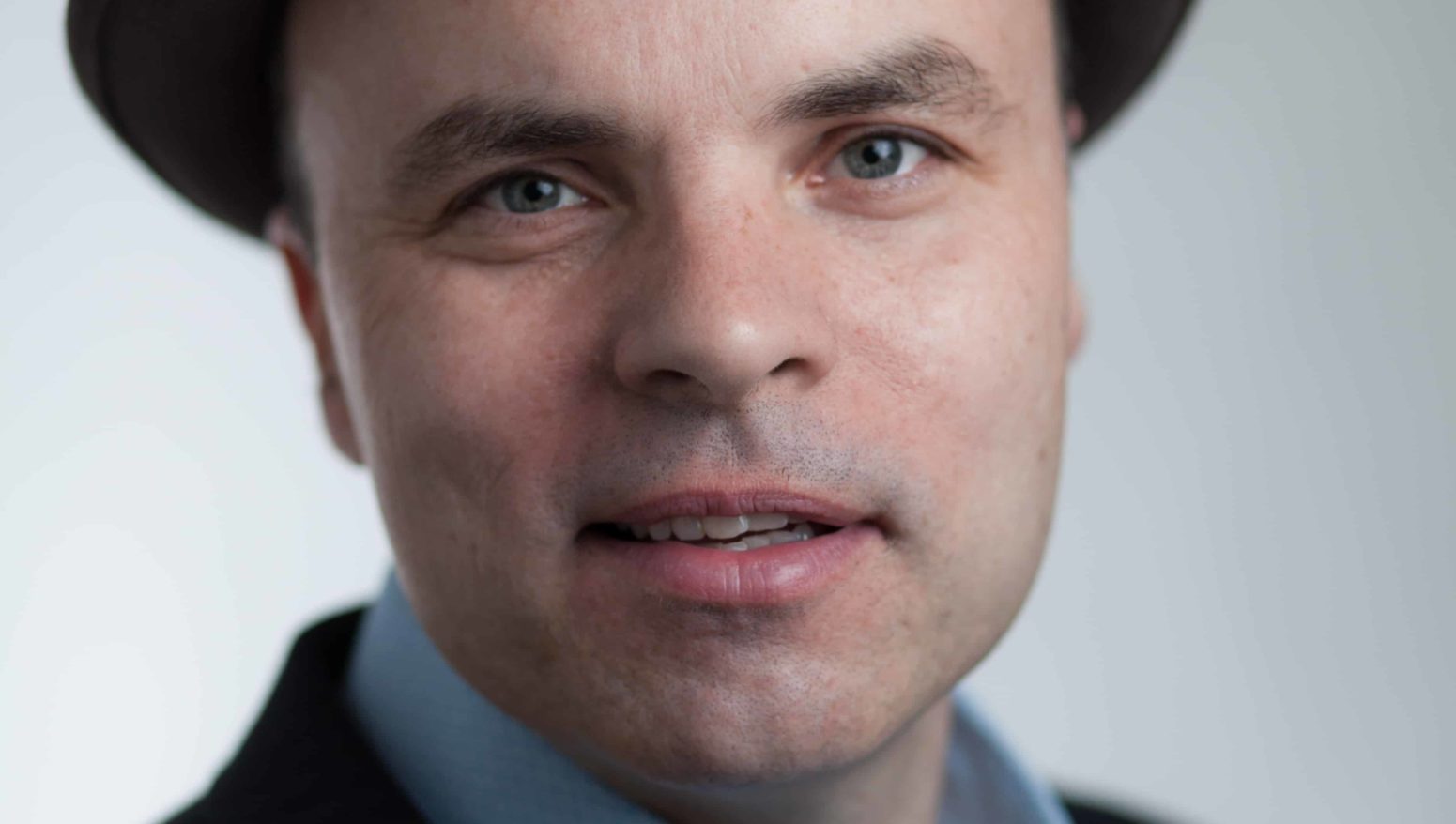
Guernica: I was recently recruited to take a class designed to instruct teaching artists to use their art to arouse youngsters’ sense of injustice and to evoke the desire to revolt. Are you sold on the notion that art of any kind—especially theater—needs to be a call to arms?
J.T. Rogers: I’m suspicious of artists who talk in great detail about what they seek to teach their audience and get them to do. That’s great in relation to their citizenship, but I don’t think that ends up making very good theater. It’s become kind of taboo to talk about the sexy, spooky, surprising stuff—which is silly to me.
When we were working out the marketing [for Oslo], they wanted to talk about the content—the process around the Peace Accord—and I just kept saying, “No, no, no. Just say it’s funny.”
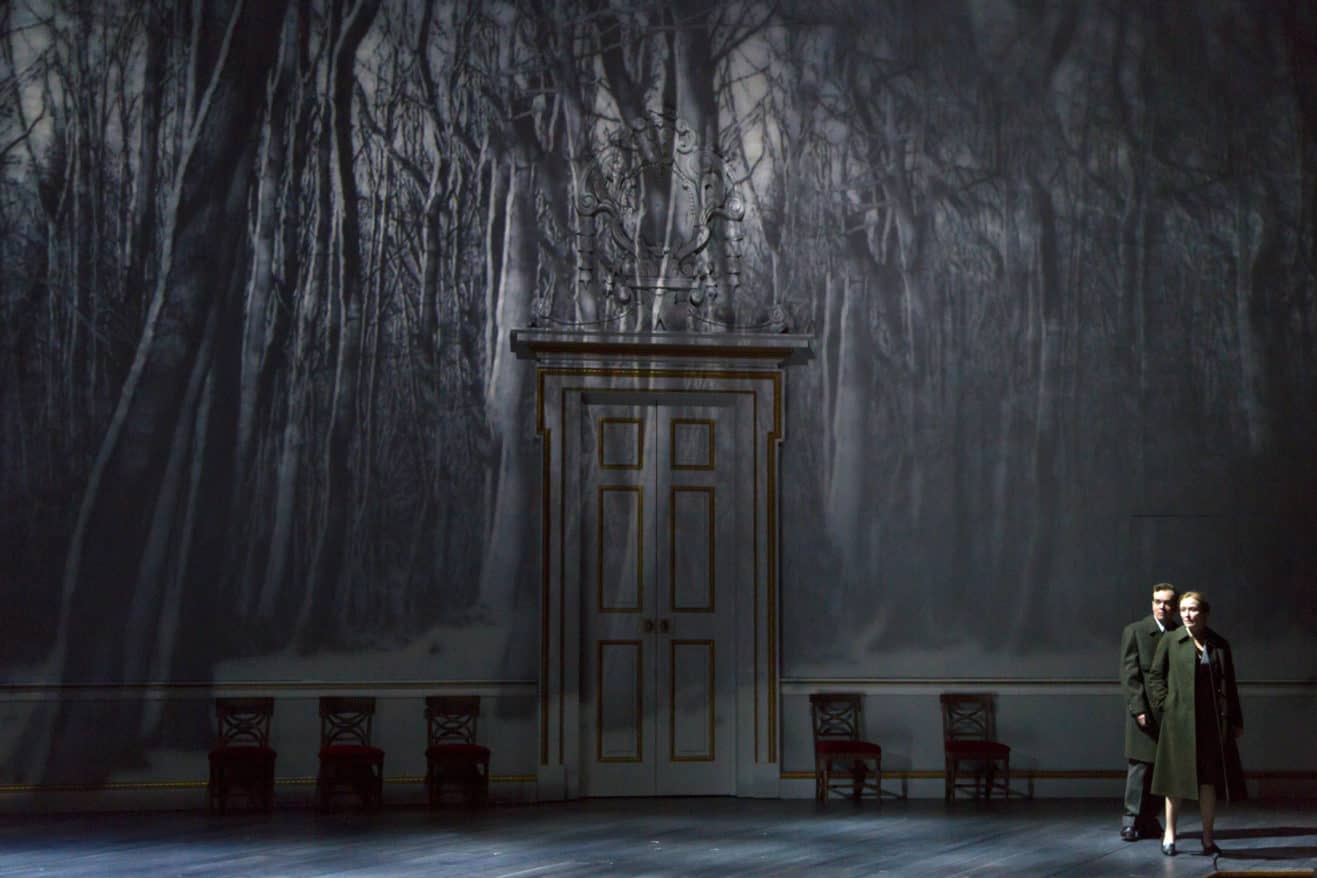
Guernica: So, when you are creating this thing that is sexy and funny, when you’re incorporating all the things that make for good theater, are you also looking for a voice that speaks to the people, and, implicitly, a voice of the people?
J.T. Rogers: I think it comes really late in the process. It’s hard enough to write a play that you would want to go to see. A play that you can say, “Oh, that’s surprising.” Theater’s a completely public art form, but in the Western, Anglo-Saxon tradition of “writer first,” you must go off and do what you want to do without worrying about those other things. Some will seep in when you get further along in the process or when you have an audience. But as the playwright—and I’m only slightly oversimplifying here—you have to write the dialogue, you have to be able to tell a joke.
Why is Hamilton so deeply politically and incredibly popular? Because it’s so fucking entertaining! But it’s three hours of Schoolhouse Rock. It’s unbelievable. I live upstate, where my thirteen-year-old has friends who would never be able to go see the play, and yet they all know the show by heart. I was out to dinner with my London producers, and Hamilton came up because it’s coming over next year. One of the other people at dinner is a playwright, and he said, “That’s never going to work over here. It’s so American, it’s not going to be a hit.” And my producer replied, “Oh no, it’ll be a massive hit.” When I asked him why, he said, “Because it makes the audience feel smart. Intrinsically smart. They have to struggle to figure it out, and then they feel smart at the end.” I thought, that’s a really great way of looking at it.
Or take Lucas Hnath’s play [A Doll’s House, Part 2]. It gets all these great reviews. And quickly it becomes an intellectual discussion about the political content, the concept of feminism—and I’m not saying that isn’t in the play, but the audience, including the people writing those essays, likes the play because it’s funny, surprising, odd, and disconcerting. People who do care about concepts are a very small percentage of the population and certainly not the people who have to pony up the money to buy tickets. You’ve got an obligation to give them something that makes them go, “Yeah! That was a full-course meal.” They need to get something they can’t get by staying home and watching Netflix.
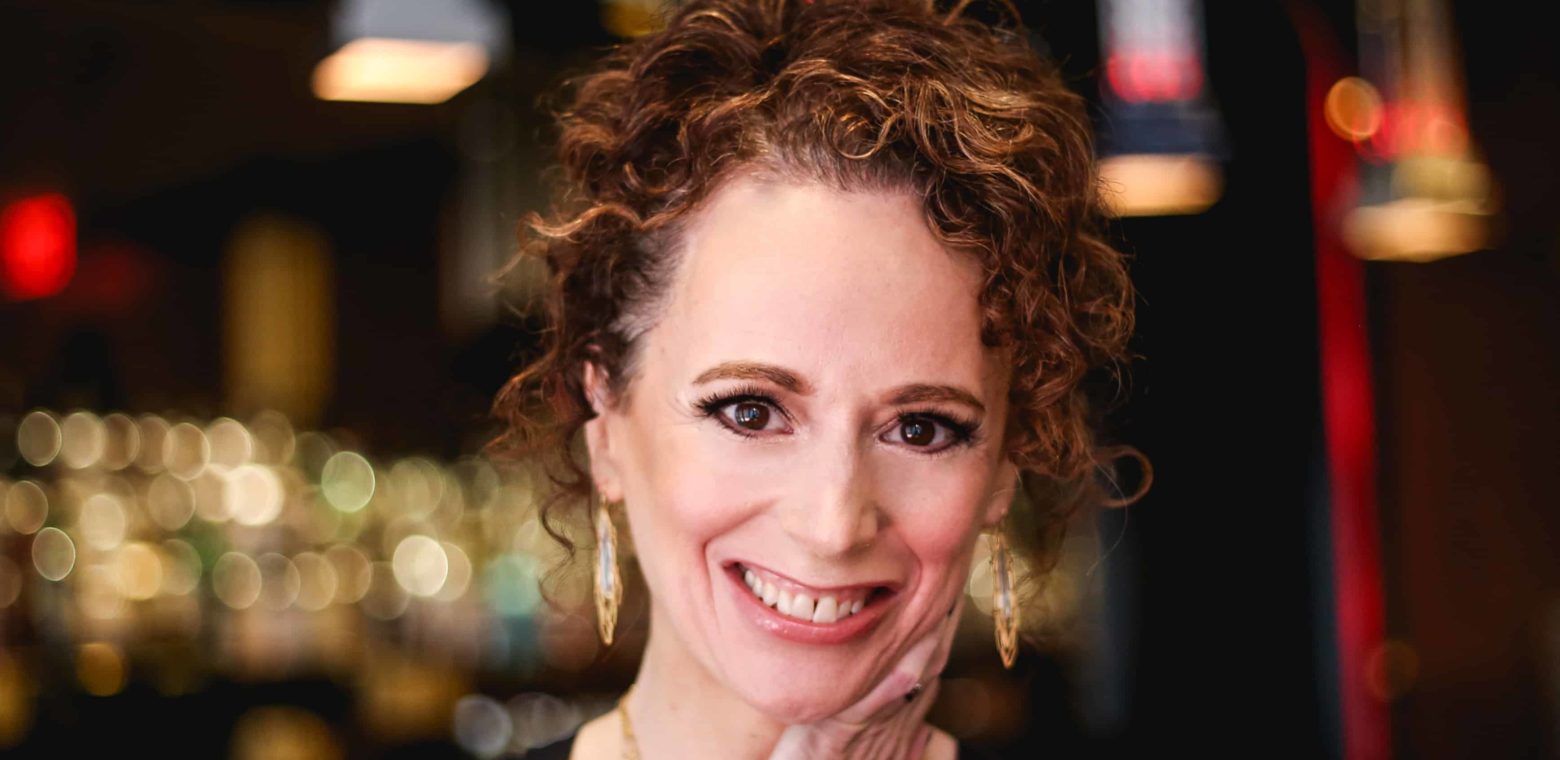
Rebecca Taichman: There is no single—or simple—answer. I would be wary of saying that art has to do any specific thing other than be a true expression of what any given artist wants to make. As I get older, I find myself drawn to projects where I feel deep purpose, especially now, in the terrifying cultural moment that we are in. But I also feel there is a desperate need for people to have release, to laugh as a community in a room together. That in itself is purpose. So I see a place for a great range. Fundamentalism, the curse of fundamentalism, is believing that there is any one single truth. I believe there should be tremendous space in theater and in art-making. It should not be limited by any single idea of what is “right” or “important.”
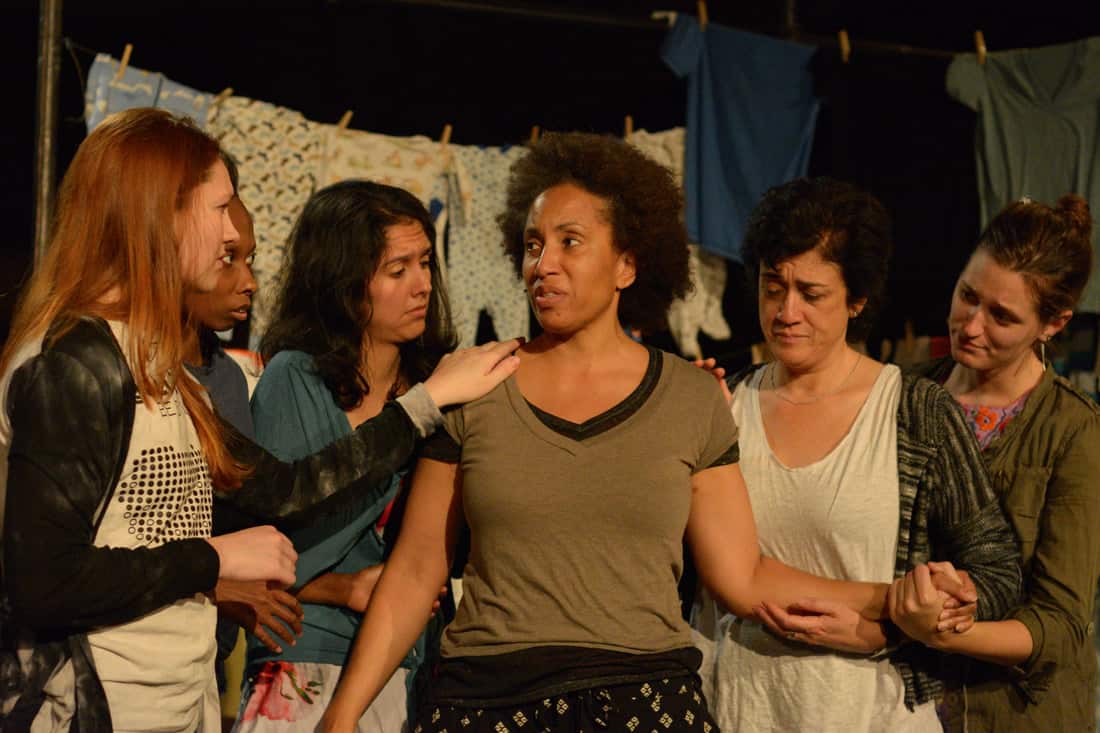
Guernica: This new translation of Trojan Women seems uncannily relevant to the #MeToo movement and the surge of retribution for sexual inappropriateness against powerful men. But you’ve been working on this for over a year, no? Is that coincidence?

Rachel Dart: We began to work on Trojan Women at just about the time when the plight of the Syrian refugees exploded. The company chose the play because of the way it reflected specifically that tragedy and so much more. And yes, it has become achingly relevant to the situation in the news that grows bigger every day.
I look at projects less in terms of political statement and more as representation. Does the play represent the culture—in this case, the women—in a thoughtful, authentic way that centers the women’s perspective?

Guernica: Seems like a fairly strong endorsement for the argument that, one way or another, a good play will make a strong political statement.
Robert Schenkkan: I’m not particularly religious about it. It’s certainly drama that drives the play. In the case of All the Way, the political aspect of the play, which is available to those who want to be conscious of it, is an attempt to understand a couple of things. Why we wound up today where we wound up in conversations about certain issues. By going back to 1964, you could get a sense of the politics of that era and how choices made or not made then have brought us to a place today. There is definite hope on my part that arguments of today are more comprehensible by putting them in a historical context.
It was also an attempt to help people understand how complicated the democracy is. How hard it is to pass legislation. When we do, it’s such an extraordinary achievement. Life-changing. I have found that most don’t understand how challenging it is. So both of those are themes that I hoped would be available to an audience. But I am really interested in this individual, LBJ, as truly a kind of Shakespearean character, a dramatic character, fascinating in and of itself. In the right performer’s hands.
Guernica: Why LBJ?
Robert Schenkkan: My father, a pioneer in public radio, knew him, he was important to our family. As I grew up, the more I read about him, the more interesting he became. How he became so loved, so hated, so successful, so disastrous. I became ever more fascinated by him.
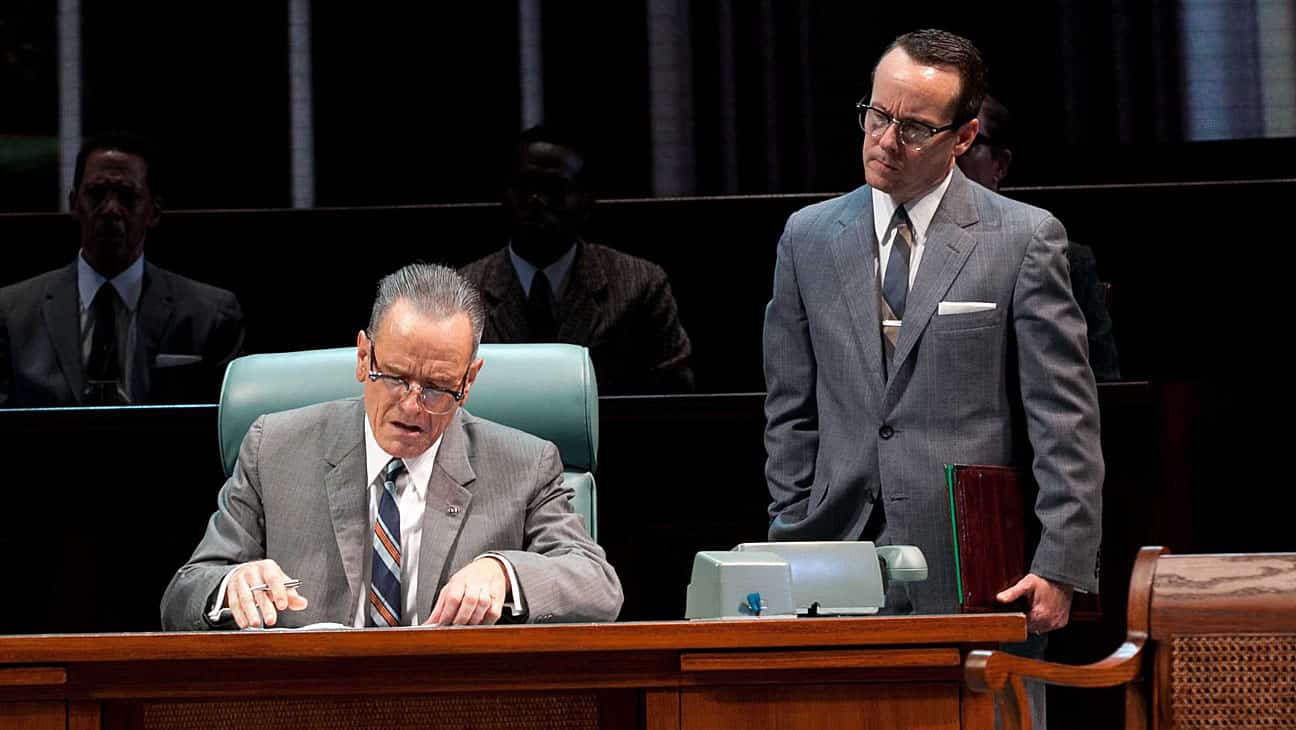
Guernica: The archetypal classical hero, driven and destroyed by his own hubris. Then did you see the events of 1964 as a mirror to hold up to today?
Robert Schenkkan: No. Not a mirror. That’s not accurate to say. It’s a genesis story. An attempt to understand how we wound up in our situation. Not so much drawing parallel between 1964 and 2012 [the reelection year in which the play premiered]. Once again, we are fighting at least one unpopular foreign war for which there is increasingly less public support while simultaneously no easy solution for withdrawal. Once again, voting rights are under attack—albeit in more clever ways—to prevent not only minorities, but also students, from voting. Once again, we are fighting about healthcare. And once again, race has re-emerged as a volatile national issue. Of course, in 1964 the leading race-baiter, George Wallace, could only dream of the White House. Trump actually got there. My insistence on producing the play in a presidential election year, which was quite intentional, was designed to encourage people to examine these two years side by side, past and present.
Guernica: Where do you stand on the notion of theater as an agent of change?
Robert Schenkkan: If we look at Western theater tradition, it was founded as a communal event in which the stakeholders, called warriors, for periods of celebration in a religious/civic festival, convened to experience the foundational stories of their culture, which inherently, inevitably, and quite consciously commented on where they were as an emerging, evolving society. This is a significant part of what theater was. What theater is. This is why, invariably, in totalitarian societies, artists, especially dramatic artists, are almost always among the first to be excised.
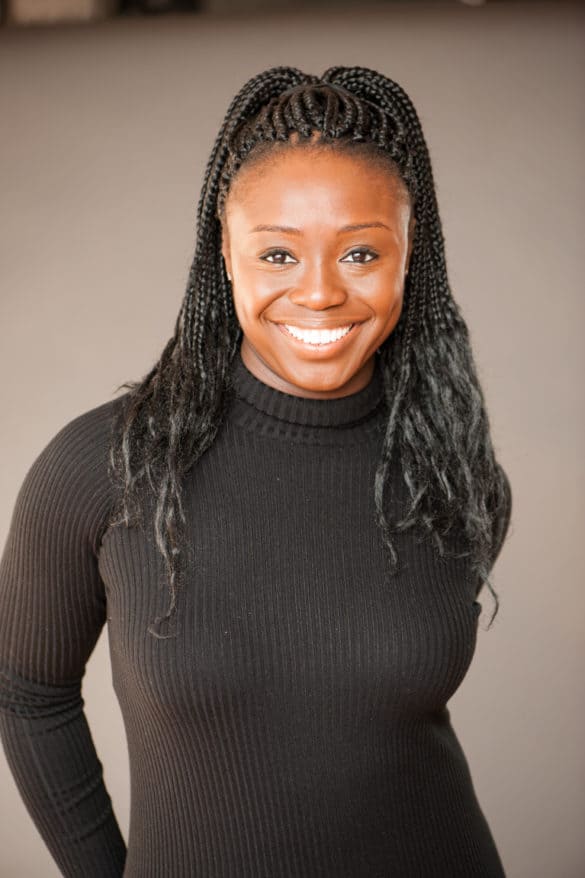
Jocelyn Bioh: To the question of theater inciting change, I don’t know that I actively think that way as I start working on a play. As I work, the activism is innate, and it manifests itself in a comedic way. So while the subject is serious, I approach it with humor.
Robert Schenkkan: It won’t always work though. Some will walk out of a play thinking, “This is bullshit.” Some will walk out thinking, “My God, I must do something now.” Still others will think about it for a long time. Maybe the play will alter something or maybe it won’t.
It’s very important to be precise about what we are talking about here. There is a sloppy kind of criticism that if the audience doesn’t like my work, it wants to sort of mush it all up and accuse it of being agit-prop or propaganda. It’s not.
Theater must provoke thoughtful and meaningful engagement with one’s culture and society itself. It’s meant to provoke a really intimate engagement by the audience, an in-the-moment experience—a stimulating, moving, exhilarating moment—that gives them something to walk away with. How deep does it get? How does it permeate dreams and preconscious thought? That’s the essence of theater.
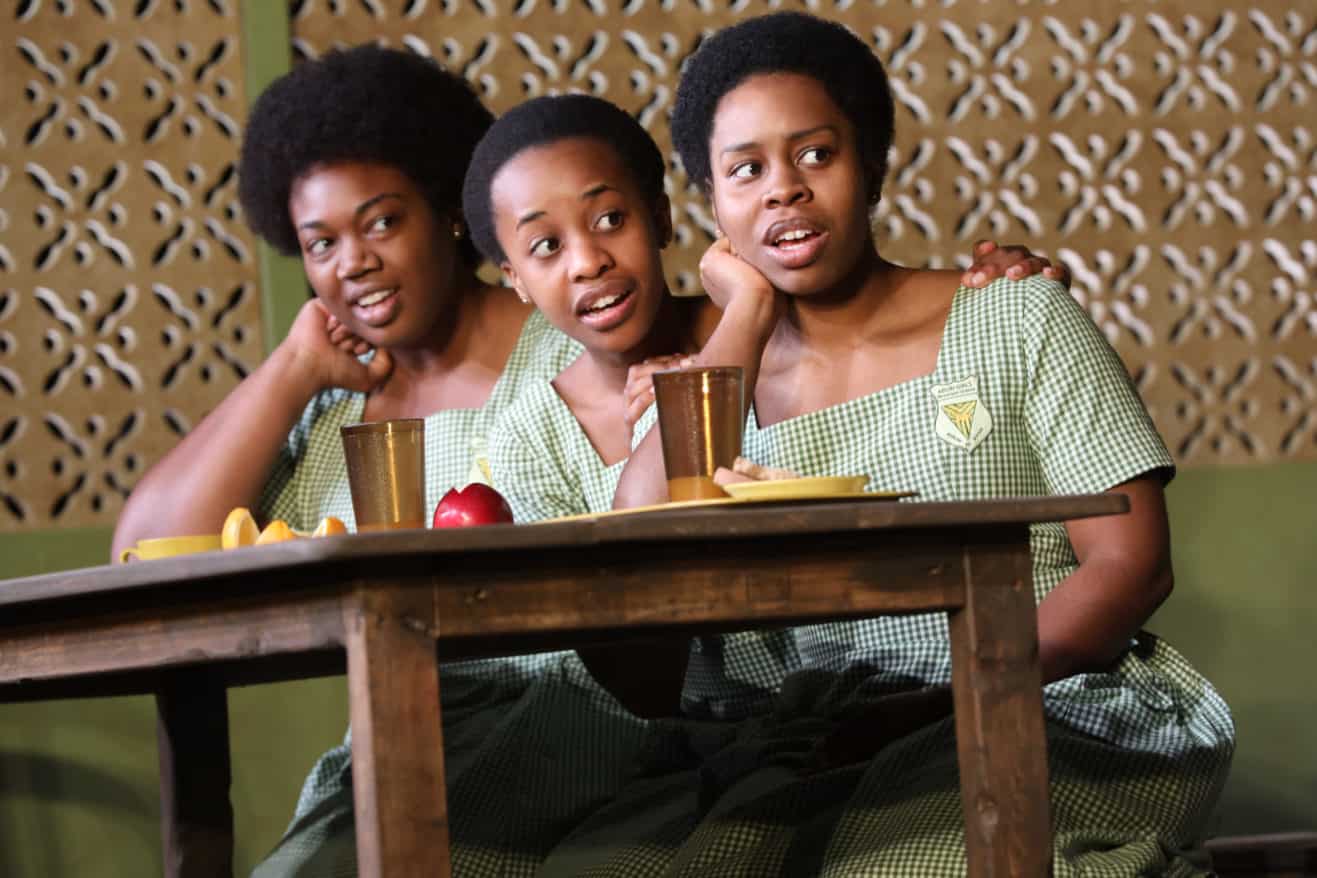
Guernica: So theater can illuminate our deepest cultural roots while also invoking change?
Jocelyn Bioh: I think so. I want to authentically tell African stories about African people, who are not all the same but who share a common struggle with war, famine, rape, etc. But those sad struggles are not the whole African story. They are not fully reflective of the diaspora. I apply a comedic lens to make the African voice more authentic, more understandable.
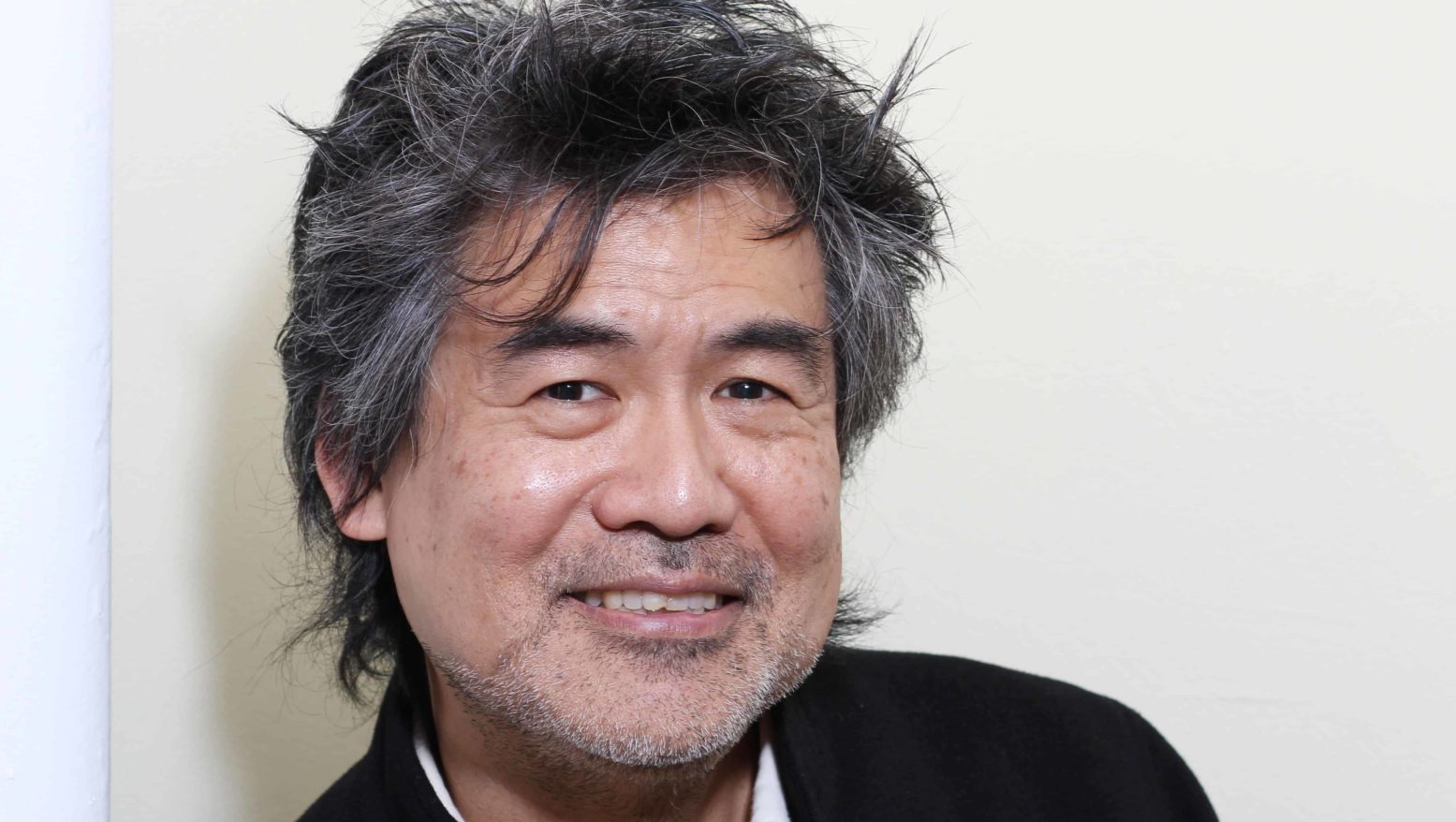
David Henry Hwang: I am a little more conscious of wanting to write about an individual’s relationship to a nation. A particular investigation of what it means to be American and what America’s relationship to the world is. So I think perhaps because I’m the first-generation American, the child of immigrants, a person of color, it’s more in my forefront. So I do tend to be more conscious of the subject, the questions that I ask.
Guernica: From what I have read about your new play, Soft Power, a musical that you’ve co-written with Jeanine Tesori, I infer that that play will take us into the relationship you’re describing. Could you tell me about it?
David Henry Hwang: It’s set in the future. It begins in 2016, then it jumps a hundred years. An incident that took place in 2016 has become the basis of a beloved East-West musical in China. A theater there is preparing to mount a fiftieth anniversary tribute to the production of that musical, which celebrates the great day in 2016 when Donald Trump was nominated to run for president of the US, and America descended into the turmoil that accelerated the rise of Chinese supremacy. It’s a love story, an East-West love story, about how China has stepped in to civilize America and eliminate that silly chaotic idea of democracy that led to no good.
It’s all about authenticity and power. We as Americans get to appropriating or exoticizing other cultures. We often think we don’t mind when cultures appropriate ours. We don’t mind when Japanese people dress up like cowboys. But you have to consider appropriation through the lens of power relationships. It’s a question of punching up versus punching down. It’s one thing when the jester makes fun of the king; that’s funny. But when the king makes fun of the peasants, that’s not funny.
Guernica: Does the power of theater come from its ability to arouse empathy?
David Henry Hwang: Theater is the most face-to-face medium and is particularly well-suited to humanizing and instilling empathy. Theatrical empathy is powerful simply because you have live people onstage telling a story to a live audience. By contrast, it is easier to insult people and dehumanize people on the Internet or on Twitter than in face-to-face encounters.
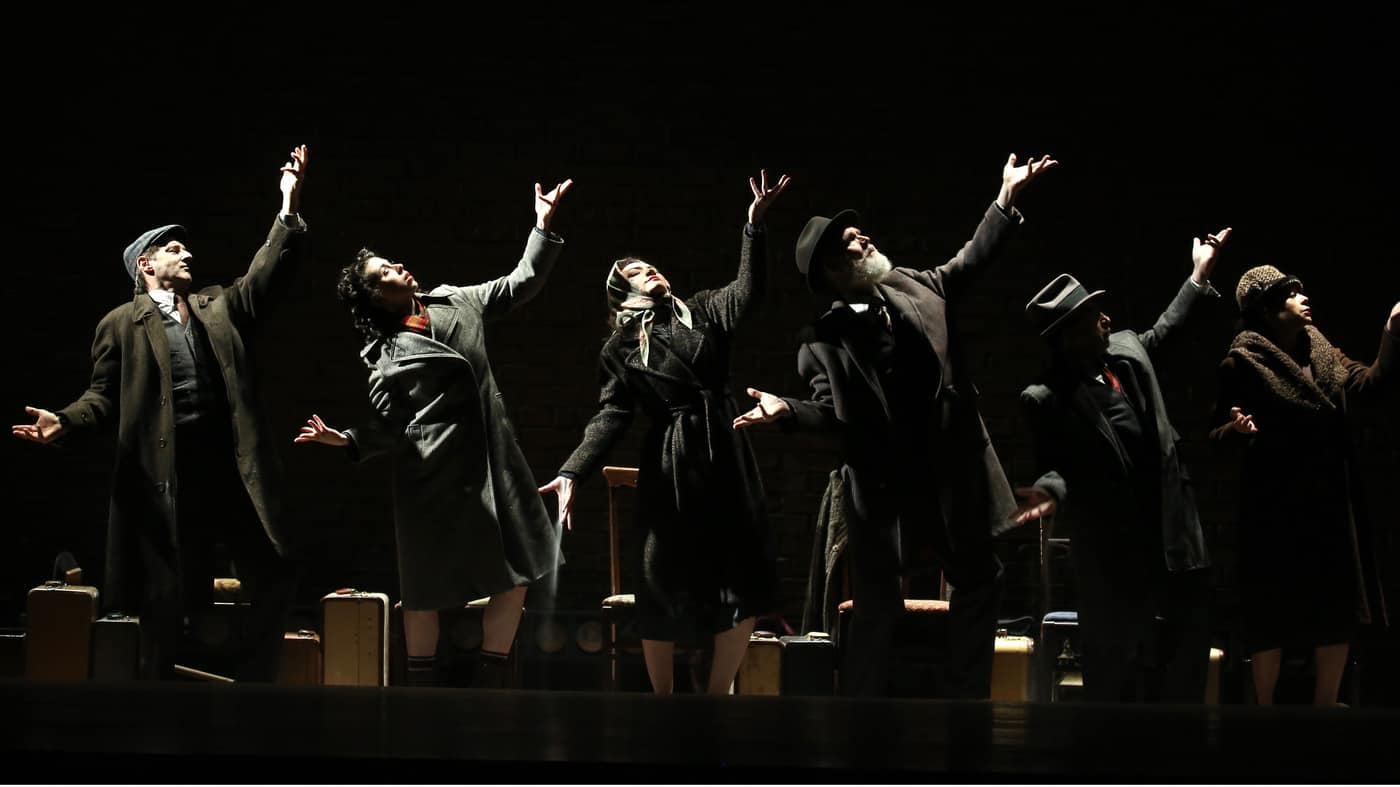
Guernica: Theatrical empathy is especially good at helping audiences understand what our fellows have lost or been deprived of.
Rebecca Taichman: That’s true. Indecent looks at the near-death of Yiddish, the attempted murder of an entire language. Yiddish has survived in many forms and there are great and beautiful efforts to keep it alive, but the attempt to decimate it has had tremendous and irreversible impact.
Jocelyn Bioh: Part of what I wanted to do was to write a play that would preserve some of the heritage my family began to erase when they willingly emigrated from Africa and settled in America.
We are African. But there was a degree of assimilation our parents felt we needed to have. Our culture was fragile in this country. Our parents emphasized the need to fit in, to speak English without an accent. So we didn’t learn our language, and with language went our culture. We became what our parents so badly wanted us to be, which was truly American.
Guernica: It’s a great irony, isn’t it? The first thing the colonizing imperialists do is take away the locals’ language. And the first thing immigrants willingly give up when they move to a new country is their language. Is acquiescence less disturbing than domination?
Rachel Dart: Of course. If you are reduced to a body, and you become your sexuality, you learn to use that to survive. There can be no shame, no blame in that. So long as you remember that there is always one part of your mentality that is only your own.
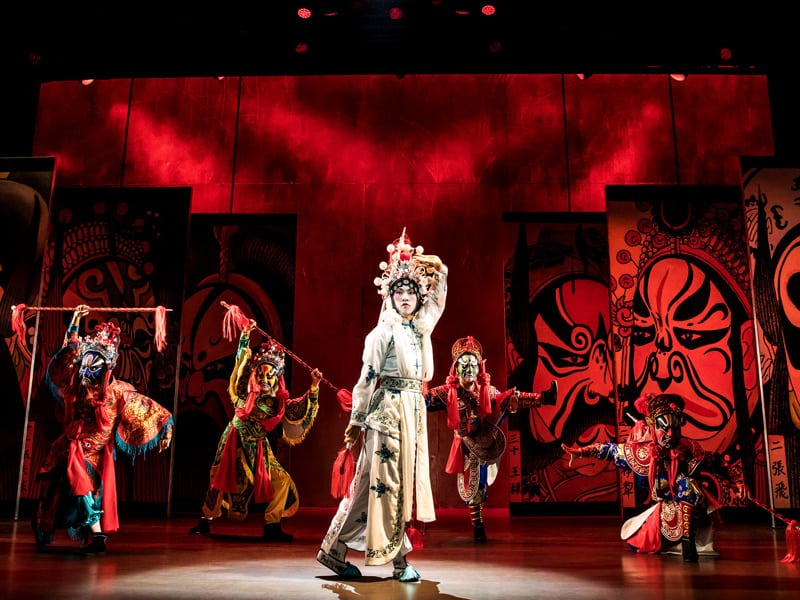
Guernica: David, I wonder if this friction motivated you to bring M. Butterfly back now. What makes now such a good time to reawaken it?
David Henry Hwang: I wanted to wait for context. When we had the opportunity to approach it in a really fresh way that would reinvent the work for a new time. A post-Crying Game time. When Julie Taymor came on to direct, she encouraged me to look more deeply into the real lives of the people on whose story the play is based. By looking at information that was not available when I wrote the original play, we were able to make the lovers’ lives more nuanced and complex. We were able to look at the relationship in a less gender-binary, more gender-fluid mode, a way that is more consistent with how we have learned to see gender identification today.
We had a lot of issues to explore. Sexism, racism, imperialism, sexuality. Tying all those together was saying something thirty years ago that was not in the mainstream conversation. We want to move the culture forward this time as well.
Guernica: I read that Julie Taymor was far more interested in enlivening the love story than in any Brechtian socio-political agenda. Love stories can be powerful metaphors for so many of the relationships these plays explore.
Rebecca Taichman: Ultimately, the overriding question that Indecent asks is, How does love survive in a toxic world? The play fights for the belief that love must prevail, and hopes to inspire a vision of a life driven by love rather than fear or hatred.
Where the play goes to is a pretty horrific moment in history. It’s fighting for a hope and a belief that the forces of fear and evil will have to back down. So much of what we are living through today is in Indecent. Take immigration. America in the ’20s was shutting its borders, and that was a huge part of why the assimilated Jewish community really did not want the play done, why they allowed it to be shut down. It did not present Jews in their idealized form. The country was so radically anti-Semitic, and the people who had built lives here did not want the Eastern European Jews flooding our shores, to sully the landscape. Here’s where the survival of love is so pressing. How do you survive and thrive in a world that is being more and more driven by fear and by hatred? It parses out on every level.
Guernica: The pressure to fit in is irresistible at times, particularly for women. Every aspect of our lives is affected by the imposition of societal values from the day we are born. That must be especially true for women of color.
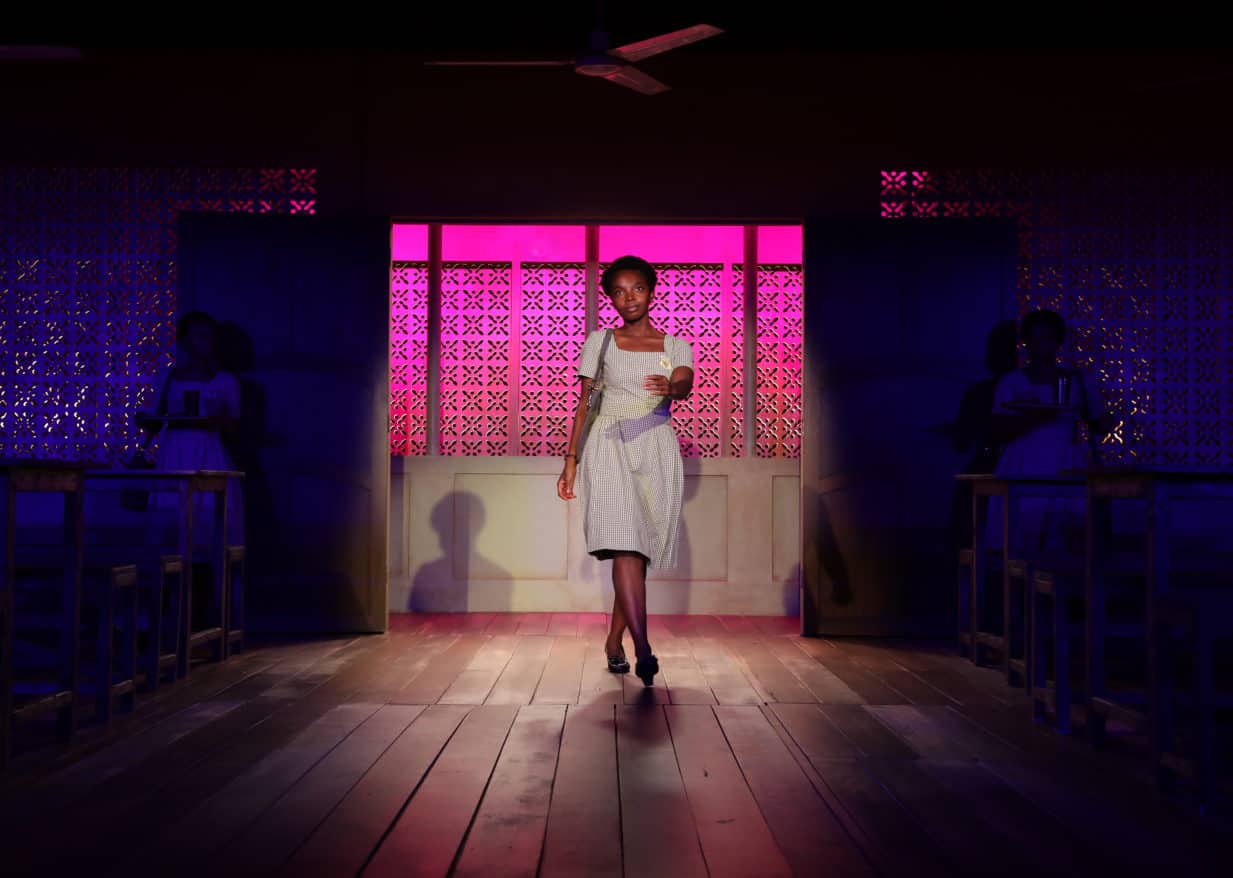
Jocelyn Bioh: School Girls is about many of those things. About the standards of beauty created by society, how members of that society buy into those standards. And colorism is at the heart of that, the central idea.
I am first-generation Ghanian American. Because I grew up in this country, I also identify as a Black American woman. I understand the complexities of colorism in American society, how it has existed from slavery to now. How white masters raped their slave women, and their children were of mixed race and still slaves but somehow better than darker slaves. I was aware of the lighter-is-better American construct. But I was surprised, even shocked, to learn that it had infiltrated African societies, that intra-racism exists across the boards. We have not yet broken free from it. White culture still rules and sets standards of beauty in many colonized countries, where people have difficulty overcoming their prejudices. Putting this into a comedic context, opening a conversation about it, seemed very important to me.
Guernica: It’s a conversation that could loop around forever. I am fascinated by the fact that as women’s consciousness grows, women are still quick to blame women for whatever happens to us. No matter how Trump offended, Hillary was still worse among liberal feminists. She’s our Helen of Troy, who will never be forgiven.
Rachel Dart: It’s true. Since the time of Eve, men and women have found it convenient to blame women for their fate. This avoids his having to take responsibility for his actions. It’s also useful for women to blame and shame women. It’s self-protection. You convince yourself that what happened to her could never happen to you, that you would prevent yourself from suffering her fate. Which is self-delusion really. Because we don’t have that control.
Guernica: If there are these eternal truisms, is there a benefit to looking at ourselves by analyzing a fictionalized version of the past? Austrian writer Stephan Zweig got into a lot of trouble with his readers when he exclaimed that the present illuminates nothing. He was defending his choice to refrain from writing about the Anschluss and the persecution of the Jews. Do you think the artist and his audience need processing time before current events should be depicted on the stage?
J.T. Rogers: The short answer is yes. William Gaddis has said, “Art, like light, needs distance.” I need distance in my personal life to understand things and certainly as a writer to understand things and to see things clearly. I can’t tell you how many times producers have called me lately to commission me to write a play about Donald Trump. My answer is always no. We have no idea what this will be about, what it will mean.
Robert Schenkkan: I’m not religious about it but I don’t feel that way myself. Writing Building the Wall, I felt I could not wait for time to allow me to absorb attitudes.
Guernica: What about a play set in the future, looking backward at our present? Does that provide a more truthful reflection of who and what we are?
David Henry Hwang: Maybe. I think what I’m trying to do with Soft Power is look at the longer-term implications of 2016 for our current day. I feel like we are at a moment in history, not necessarily a great moment, but something is shifting. So the ability to look back at where we are today and try to project how this moment will be seen not only by future generations but by a world in which another culture is dominant felt like a way to kind of get some perspective and some context on what we are living through at the moment.
You know, what makes a play interesting are the dilemmas your characters face. I choose the dilemmas I face as a writer. They have to do with identity and its authenticity, its fluidity, how the way we perceive ourselves changes when our social context changes. Those are my concerns.
Note:
Oslo is now playing at the Harold Pinter Theatre, in London.
Butterfly closes January 14 at the Cort Theater, in New York City.
School Girls is at the Lucile Lortel Theater, in Greenwhich Village, and is scheduled to close December 23.

